About the Report
This comparative analysis explores the current landscape of academic freedom in Canada. Go, Houston, Kim, Liu, Mendoza, Phuong, Roger, and Soebroto review 23 university institutions across Canada, which are all members of SAR Canada.
These university institutions are broken down into five regions: National, Central and Ontario, Québec, and Western.
- National: Canadian Association of University Teachers (CAUT)
- Atlantic: Memorial University, St. Mary’s University
- Central & Ontario: George Brown College, Carleton University, McMaster University, Queen’s University, Trent University, University of Guelph, University of Toronto, Western University, University of Winnipeg, University of Ottawa
- Québec: McGill University, Université Laval, Université de Montréal, Université du Québec à Montréal
- Western: Mount Royal University, Simon Fraser University, University of Alberta, University of British Columbia, University of Lethbridge, University of Victoria
Drawing mainly from faculty collective agreements, freedom of expression/speech policies, academic freedom policies, harassment and discrimination policies, and student rights policies, Go, Houston, Kim, Liu, Mendoza, Phuong, Roger, and Soebroto analyze four dimensions of comparison:
- Definition of Academic Freedom
- Focus and Scope of Academic Freedom
- Separation of Academic Freedom from Freedom of Expression/Speech Policies
- Separation of Academic Freedom from Harassment and Discrimination Policies
Note: The four dimensions above link to presentation clips
View the Report & Presentation
Academic Freedom in Canadian Higher Education Full Report 2021
Meet the Authors
Krystal Go (she/they)
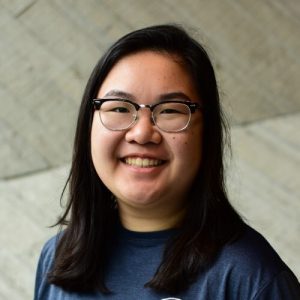
Program: Third-year Political Science Student
Interests: I am interested in policy, research, and human rights. I also am passionate about the importance of education and access to education. This engagement encompassed all those interests into one experience.
“The implication of this whole project is a call for more awareness and a desire for more inclusive and consistent policies across institutions that are wholly protective of all members of the higher education community.”
Jaerin Kim (she/her)
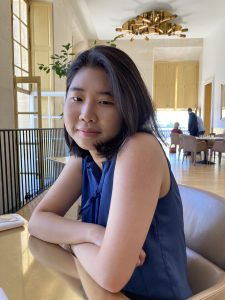 Program: Third-year International Relations and Law and Society Student
Program: Third-year International Relations and Law and Society Student
“Our team’s report and presentation matter because this is the first time ever that data regarding Canadian higher education’s response to threats against academic freedom was compiled in such a comprehensive manner. The fact that it was entirely conducted by a team of undergraduate students also bears much significance as we are hardly offered a formal platform to speak up at a table addressing the topic of academic freedom even though it concerns us as well. Our team’s findings are very much in line with this status quo, as we found out that only 8 out of 23 Canadian universities extend their academic freedom policy to students.”
Maria Liu (she/her)

Program: Third-year Political Science and Philosophy double major Student
“One interesting aspect of our findings that I’d like to note is the difference between French-speaking universities and English-speaking universities. While the latter generally compiled policies together in collective agreements, the former usually published different policies separately (i.e. the policies on academic freedom are separate from policies on free speech) which actually helped differentiate the topics from one another more distinctly.”
Nicole Mendoza (she/her)

Program: Honours Political Science with International Relations Student
“The most important takeaway from this experience was learning how these gaps in academic policies leave room for bridges to be built between faculty and students. Much tension arises when there is a disagreement between a student body and school faculty, making it crucial that universities create spaces for these two groups to effectively engage in conversation.”
Alan Phuong (he/him)
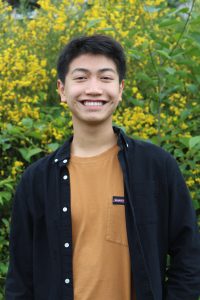
Program: Third-year Major in Political Science, Minor in Chinese Language & Culture Student
“What particularly stuck with me, was the ways in which many higher education institutions rather loosely defined the concept of Academic Freedom. Academic Freedom has become an intensely politicized concept over the past few years, and its parameters vary from institution to institution. Where does, per se, the line cross from Academic Freedom to Freedom of Expression? Learning that only 8.7% of institutions we compared had a clear distinction between Academic Freedom and Freedom of Expression was enlightening, and says much about the current landscape. Institutions should better define what Academic Freedom is and is not. The vagueness of the current definition is perhaps allowing for confusion to manifest over the concept.”
Illyra Soebroto (she/her)
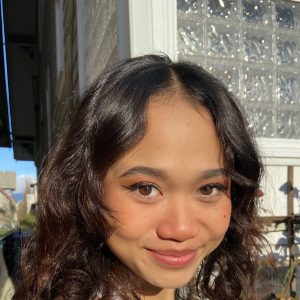 Program: Third-year International Relations Student
Program: Third-year International Relations Student
“I learned that when you deal with a specific social justice issue such as academic freedom, it is not enough to just focus on the topic itself. During our training, we learned about solidarity and trauma awareness. This training has helped us approach the project more holistically and consider the different individuals and communities that would be disproportionately affected by an inadequate academic freedom policy. We also reflected a lot on our own positionality and privileges as UBC students and actively attempted to not further perpetuate a world of academia that excludes others.“
Marion Roger (she/her)
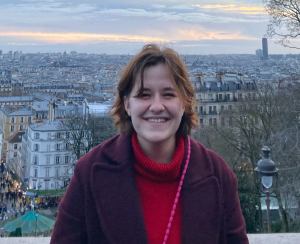 Program: Fourth-year Political Science & Gender, Race, Sexuality, and Social Justice Student
Program: Fourth-year Political Science & Gender, Race, Sexuality, and Social Justice Student
“One thing I learned during this project is the importance of trauma-informed community care. It was enlightening to finally feel like emotions that may arise when dealing with such hard topics could have a space to exist within the little community that we created. It is definitely an approach I will be mindful of in the future.”
Sage Houston (she/her)

Program: Third-year Political Science and History Student
“As a UBC student who is afforded academic freedom, it can be easy to take for granted. However, this research revealed how much more needs to be done both on our own campus as well as others. By limiting academic freedom to faculty, we only serve to limit the potential of students and research that is produced and only reinforce strict and harmful power structures on campus between faculty or staff and students. Broadening academic freedom is about pushing against these hierarchies, and truly letting students realize their potential.”
Academic Freedom and Human Rights Research Engagementship 2021
This report was made during the Academic Freedom and Human Rights Research Engagementship 2021: a co-curricular opportunity which was a collaboration between Scholars at Risk (SAR), SAR’s Canada Section (SAR-CAN), the UBC HRC, and the UBC Office of Regional and International Community Engagement (ORICE). The students were supported by the HRC’s team:
- Dr. Jenny Peterson (she/her), Faculty Advisor
- Tamara Baldwin (she/her), Director of UBC ORICE
- Nastya Mozolevych (she/her), Program Assistant
- Shanel Feller (she/her), Graduate Academic Assistant
Licensing and Usage Rights
This work is licensed under the Creative Commons Attribution-NonCommercial-ShareAlike 4.0 International License.
Please use this citation:
Go, K., Houston, S., Kim, J., Liu, M., Mendoza, N., Phuong, A., Roger, M., & Soebroto, I. (2021). Academic Freedom in Canadian Higher Education: A Comparative Analysis. Vancouver, BC.
